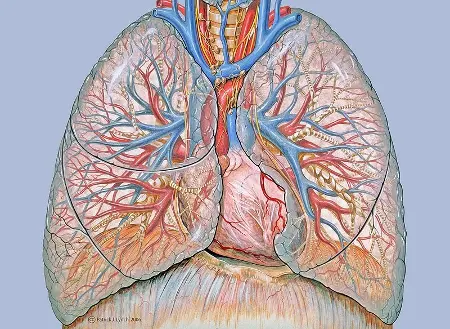The abbreviation LUSI stands for the German Lung Cancer Screening Intervention Trial. Around 4000 people from Heidelberg, Mannheim, Ludwigshafen, the Rhine-Neckar and Neckar-Odenwald districts who had been smokers for decades participated in the study since 2007. Half of the 50 to 69-year-old participants underwent low-dose multilayer computed tomography (MSCT) every year for four years. MSCT provides significant images despite the low radiation dose.
LUSI was led by the German Cancer Research Center (DKFZ) in cooperation with the University Hospital of Heidelberg. With the trial, the researchers wanted to find out whether MSCT is suitable for the early detection of lung cancer in people at high risk who are not yet symptomatic, and therefore at a stage that might still be curable.
During an average observation period of 8.8 years, 85 lung carcinomas were detected in the screening group and 67 in the control group. 29 of the screening participants and 40 patients from the control group died of lung cancer. Thus, the lung cancer-specific mortality risk within the screening group was 26 percent lower, but the difference was not statistically significant.
However, if the researchers separately calculated the lung cancer mortality rate of the female LUSI participants, there was a significant risk reduction of 69 percent in the screening group.
In Italy, Denmark, Belgium and the Netherlands, five further studies on lung cancer early detection by CT were conducted in parallel with LUSI. Here, too, there was a tendency for women to benefit more from screening, but a significant risk reduction was also observed in men.
“We must look at the LUSI results in the context of the other European trials. Each of these rather small studies is not very meaningful in itself. But together, the evidence is now clearly in favor of introducing systematic lung cancer screening for high-risk groups in Europe,“ explains DKFZ epidemiologist Rudolf Kaaks, who led the evaluation of LUSI.
Lung cancer is the leading cause of cancer death. It is usually diagnosed at an advanced stage. As a result, 85 to 90 percent of patients die within five years of diagnosis. If the disease is diagnosed early, up to 70 percent of patients can survive for at least five years.
But how do the researchers explain the differences between the sexes observed throughout Europe in the reduction of lung cancer mortality? Lung cancer is a multifaceted disease; the tumors originate in different cell types of the lung tissue. The female LUSI participants suffered from lung adenocarcinoma much more frequently than the male participants. “It is possible that this type of cancer can be detected particularly efficiently at an earlier stage, simply because it often occurs in peripheral lung tissue, where it is easily detected in CT. Other types of lung cancer often develop centrally in the bronchi, where they are only noticed with CT when they are larger,“ explains Stefan Delorme, the lead radiologist in the study.
Nikolaus Becker, Erna Motsch, Anke Trotter, Claus P. Heussel, Hendrik Dienemann, Philipp A. Schnabel, Hans-Ulrich Kauczor, Sandra G. Maldonado, Anthony B. Miller, Rudolf Kaaks, and Stefan Delorme: Lung cancer mortality reduction by LDCT screening—Results from the randomized German LUSI trial.
International Journal of Cancer 2019, DOI: 10.1002/ijc.32486



